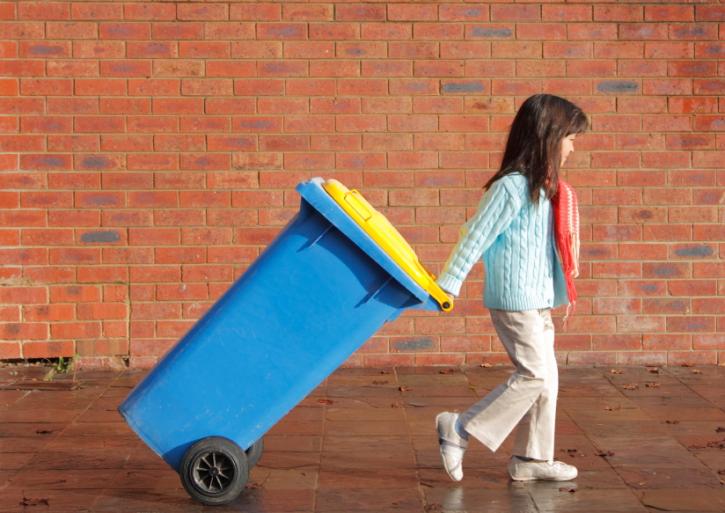Recyclage des plastiques 101: Comment recycler plus de plastiques
We’ve all been there. Debout devant le bac de recyclage, regarder un récipient en plastique et se demander, "Puis-je recycler ça?”
We all want to recycle more plastics and create a cleaner environment for our loved ones and ourselves. Here are some tips from Plastics Make It Possible® that can help you recycle right… and recycle more of your everyday plastics.
Plastics Recycling Varies by Community
While nearly all Americans have access to plastics recycling, exactly which plastics you can recycle depends on the recycling program in your area.
You typically can learn which plastics are recyclable through local recycling companies and community websites (a simple web search such as “plastics recycling program hometown/county” should find them). Many of these sites have flyers or other visuals that you can print and post for everyone in your household to see.
Another option is to visit iwanttoberecycled.org and enter your zip code to find out what you can recycle locally.
Go Beyond the Kitchen
Once you know what you can recycle, it’s important to expand your efforts beyond typical kitchen food and drink plastics. Recyclable plastics often are used throughout the house, such as your bathroom (bottles and containers for shampoo, conditioner, liquid soap, body wash, mouthwash), laundry area (detergent and cleaning products), and garage (auto and gardening products). All of these are widely recycled.
Remember to Include the Caps and Lids
Recyclers want your plastic bottle caps and container lids. Squish the bottle and twist on the bottle caps before tossing them in the bin to make it easier for recyclers.
More Bins Make it Easier
To make sure you’re recycling everything you can, it’s a great idea to place multiple small recycling bins throughout your home so you can easily collect recyclable plastics.
Take Your Bags and Wraps to the Store
Unless your curbside recycling program specifically asks for plastic bags and wraps, DO NOT put them in the bin. BUT more than 18,000 grocery and retail stores DO collect plastic grocery bags for recycling—plus bags for dry cleaning, bread, produce, newspapers, and even sealable food storage bags. You also can include plastic wraps used to package products such as cases of water bottles, diapers, napkins, and more. Just gather clean and dry bags/wraps and drop them in the storefront recycling bin. For more information, visit plasticfilmrecycling.org.
When In Doubt, Leave It Out (… Or at Least Check with Your Community’s Website)
Given the wide range of everyday plastics that can be readily recycled, it might seem like it’s okay to toss pretty much anything in the recycling bin. But putting the wrong items in the bin can be harmful. Par exemple, recyclers caution that many items—shoes, tape of any kind (adhesive, audio, video), bowling balls—can damage equipment, so please keep non-recyclables out of recycling bins.
What Happens After Plastics Are Recycled?
Burying used plastics in a landfill is a waste of valuable materials—fortunately, today more and more plastics are living another life in a variety of items such as resilient fleece jackets, fun playground equipment, or gorgeous backyard decks. Also as new packaging, durable kitchen utensils, creative toys, colorful home décor, and even tough car parts. For more information on recycled plastics, click here.
So … now that you know what to do, please pitch in and do your part to reduce waste and recycle more plastics!
Repost from: https://www.plasticsmakeitpossible.com/plastics-recycling/plastics-recycling-101-recycle-plastics-2/
If the infringement please contact delete



